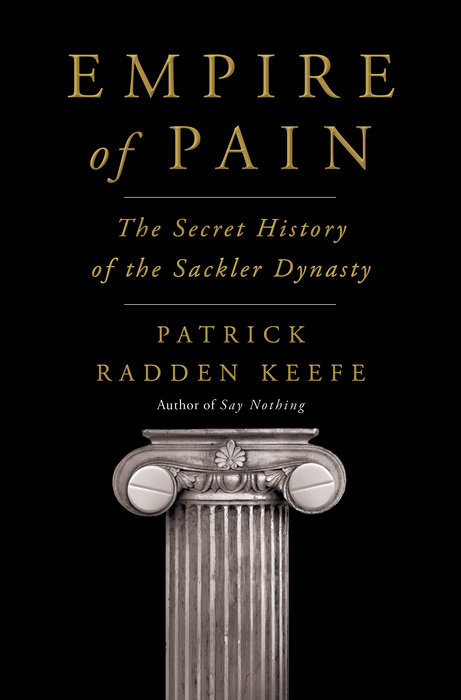Empire of Pain: The Secret History of the Sackler Dynasty by Patrick Radden Keefe (Doubleday)
Most of the many books and articles written about America’s opioid crisis focus on its damages and death tolls. But this drug plague has a most unusual origin, and that history is the focus of Patrick Radden Keefe’s astounding book Empire of Pain: The Secret History of the Sackler Dynasty.
Not only does he detail exactly how the opioid crisis began and grew — it was no accident — he drags into the spotlight one of the most secretive, wealthy, and powerful families in corporate America and holds them to account.
The book begins as a biography of the three brothers who would become the owners of Purdue Pharma: Arthur, Mortimer and Raymond Sackler. The sons of immigrant parents, they were born in Brooklyn and came of age during the Great Depression.
The first decades of their lives read like a rags-to-riches success story. All three became doctors, which led to their interest in pharmaceuticals and development of drug companies. Arthur thought outside the pillbox — he was also a brilliant advertising man and sales strategist, and a publisher of medical journals, a vertically integrated operation that made them all fabulously rich (and noted philanthropists).
And then came OxyContin. Developed by Purdue (by then in the hands of a new generation of Sacklers) as a supposedly nonaddictive substitute for other painkillers, it was aggressively marketed to doctors. It blew everything else out of the market.
And it was clearly, brutally addictive — often lethally so.
Yet, as addiction and overdose rates soared, Purdue expanded its sales force and urged them to target “whales,” the doctors who wrote mind-boggling numbers of prescriptions.
The second generation of Sacklers maintained that their drug could not become addictive if used under a doctor’s supervision — and that they bore no responsibility for its devastations.
Keefe brings the receipts, though. He reveals how the Sacklers marketed the drug, how they managed their sales force, how they manipulated federal agencies and courts, how they bent drug licensing rules, how they responded to any investigation or legal action with brutal force, how they reacted with cold indifference to all of the suffering their products caused.
A staff writer for the New Yorker, Keefe is a relentless reporter (he needed to be, given that the Sacklers started threatening legal action before he even wrote the book) and a graceful, crisp writer with a gift for pacing. The story he tells in Empire of Pain is horrifying, but he tells it so well we cannot look away.



